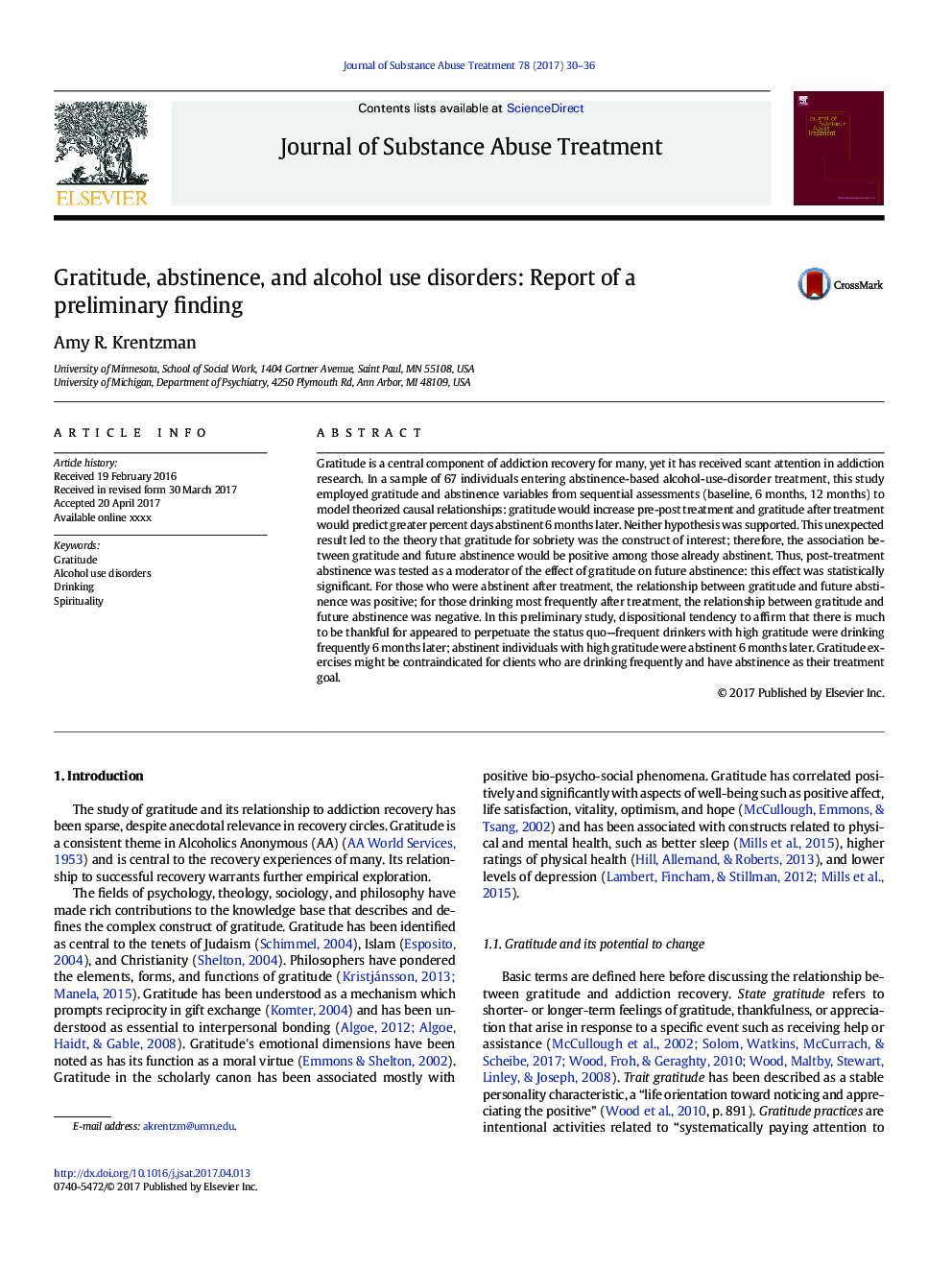| Article ID | Journal | Published Year | Pages | File Type |
|---|---|---|---|---|
| 4932342 | Journal of Substance Abuse Treatment | 2017 | 7 Pages |
Abstract
Gratitude is a central component of addiction recovery for many, yet it has received scant attention in addiction research. In a sample of 67 individuals entering abstinence-based alcohol-use-disorder treatment, this study employed gratitude and abstinence variables from sequential assessments (baseline, 6Â months, 12Â months) to model theorized causal relationships: gratitude would increase pre-post treatment and gratitude after treatment would predict greater percent days abstinent 6Â months later. Neither hypothesis was supported. This unexpected result led to the theory that gratitude for sobriety was the construct of interest; therefore, the association between gratitude and future abstinence would be positive among those already abstinent. Thus, post-treatment abstinence was tested as a moderator of the effect of gratitude on future abstinence: this effect was statistically significant. For those who were abstinent after treatment, the relationship between gratitude and future abstinence was positive; for those drinking most frequently after treatment, the relationship between gratitude and future abstinence was negative. In this preliminary study, dispositional tendency to affirm that there is much to be thankful for appeared to perpetuate the status quo-frequent drinkers with high gratitude were drinking frequently 6Â months later; abstinent individuals with high gratitude were abstinent 6Â months later. Gratitude exercises might be contraindicated for clients who are drinking frequently and have abstinence as their treatment goal.
Related Topics
Life Sciences
Neuroscience
Biological Psychiatry
Authors
Amy R. Krentzman,
